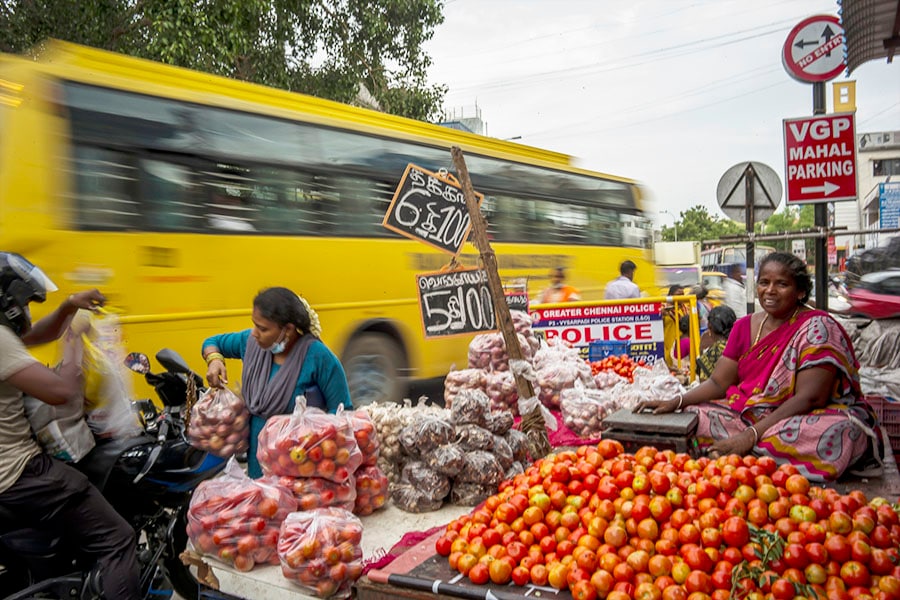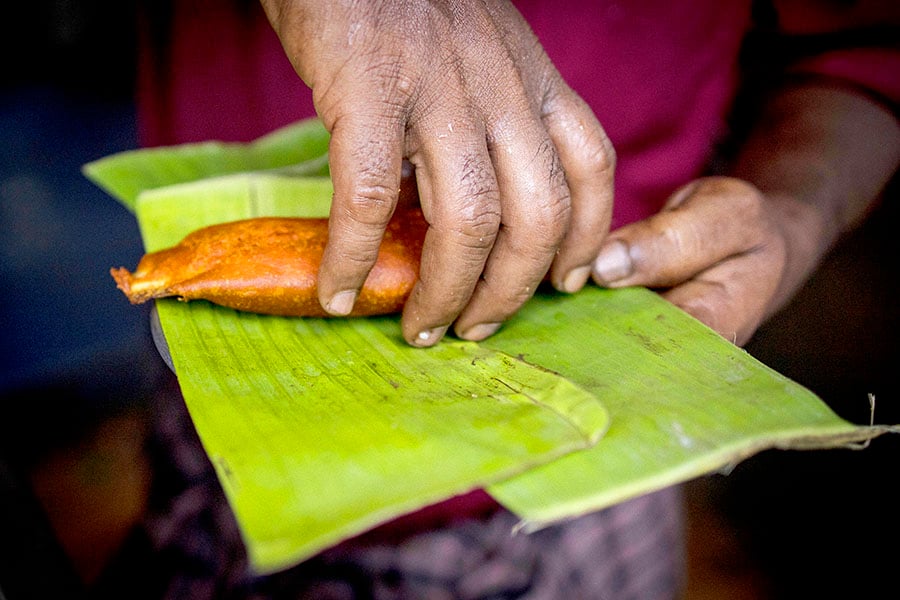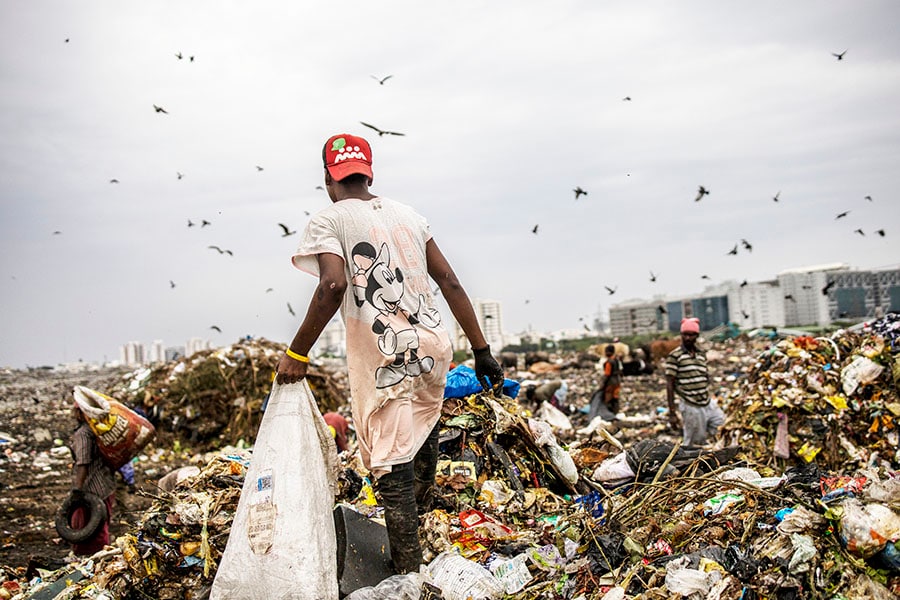
For India's efforts to ban disposable plastic, one state offers a playbook
Tamil Nadu was not the first state in India to try to curtail plastic pollution, but unlike others, it was relentless in enforcing the law. It's far from an outright success but the state's experience offers lessons for the rest of India, where an ambitious countrywide ban on making, importing, and selling and using some single-use plastic took effect this month
 Produce hawker Amul Vasudevan, who was fined repeatedly for using throwaway bags, along a busy road in Chennai, India, July 7, 2022. India’s state of Tamil Nadu was not the country’s first to try to curtail plastic pollution, but unlike others it was relentless in enforcing its law. (Anindito Mukherjee/The New York Times)
Produce hawker Amul Vasudevan, who was fined repeatedly for using throwaway bags, along a busy road in Chennai, India, July 7, 2022. India’s state of Tamil Nadu was not the country’s first to try to curtail plastic pollution, but unlike others it was relentless in enforcing its law. (Anindito Mukherjee/The New York Times)
CHENNAI, India — Amul Vasudevan, a vegetable hawker in the southern Indian state of Tamil Nadu, thought she was going to go out of business.
The state had forbidden retailers to use disposable plastic bags, which were critical for her livelihood because they were so cheap. She could not afford to switch to selling her wares in reusable cloth bags.
Tamil Nadu was not the first state in India to try to curtail plastic pollution, but unlike others, it was relentless in enforcing its law. Vasudevan was fined repeatedly for using throwaway bags.
Now, three years after the ban took effect, Vasudevan’s use of plastic bags has decreased by more than two-thirds; most of her customers bring cloth bags. Many streets in this state of more than 80 million people are largely free of plastic waste.
Yet Tamil Nadu’s ban is far from an absolute success. Many people still defy it, finding the alternatives to plastic either too expensive or too inconvenient. The state’s experience offers lessons for the rest of India, where an ambitious countrywide ban on making, importing, selling and using some single-use plastic took effect this month.
©2019 New York Times News Service









